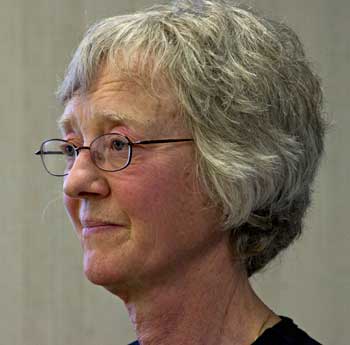A poll released this morning by Insights West, and already being heavily promoted by Enbridge Northern Gateway claims to show: “Opposition to the proposed Enbridge Northern Gateway Pipelines has subsided over the past 10 months in British Columbia, with the province’s residents now being staunchly divided on the project…”
It goes on to report:
In the online survey of a representative sample of British Columbians, support for the proposed Northern Gateway Pipelines stands at 42%, a seven-point increase since an Insights West poll conducted in February. Conversely, opposition to the project has dropped by 14 points, from 61% at the start of 2013 to 47% today.
It is important to note that the level of “strong opposition” to the project has fallen to 29% (down 9 points since February), while “strong support” increased to 16% (+5).
What the press release doesn’t tell you is that opposition to the Northern Gateway, according to the poll, is at 65 per cent in Northern British Columbia, with 50 per cent strongly opposed and 15 per cent somewhat opposed.
The Insight Poll assumes the findings of the online poll are within the usual margin of error
We have assumed that the same margins of error apply as if it were a true unweighted random probability sample with a margin of error of +/- 3.7 percentage points, nineteen times out of twenty.
The problem with the Insight West poll, like all other polls on the Northern Gateway, is that it is weighted toward the population heavy Lower Mainland. The tables released by Insight West show that the online poll had 504 respondents in Vancouver and 25 in Northern BC.
Northwest Coast Energy has spoken to pollsters both on the record and on background and it is clear that the polling entire province distorts the issue along the pipeline route.
The problems with these polls are two fold:
First is the standard polling definition of Northern British Columbia, which is based on Census data. “Northern BC” actually begins at Williams Lake, although most people believe Northern BC begins around Prince George.
Second the polls, due to small population and sample size, do not usually divide northwestern British Columbia, where the opposition is strongest to the Northern Gateway project, and northeastern British Columbia, where the energy industry is a major employer and support for the project is likely stronger.
The tables released by Insight West shows that poll surveyed just 25 people in “Northern British Columbia” but 504 in “Metro Vancouver.”
In a 2012 Ipsos Reid poll conducted on behalf of Enbridge, public affairs spokesperson Kyle Braid said their survey covered 168 people in “Northern British Columbia.” As Northwest Coast Energy News reported at the time:
Braid says the 168 people represents 17% of the sample. These interviews would have been weighted down to about 7% in the overall results to reflect the actual population of the North in BC. The margin of error in the North is about +/-7.6%, 19 times out of 20.
So with a total sample of 749 in the Insight West online poll and just 25 people in Northern BC surveyed, that means the Insight West poll survey of Northern BC covers just 3.3 per cent of the total sample. In contrast, 504 people in Vancouver were surveyed, accounting for 67.2 per cent of the sample.
The Insight West survey does acknowledge that:
British Columbians continue to be of two minds on the Northern Gateway,” continues Canseco. “There is a large proportion of the population that remains concerned with the possibility of oil spills and environmental problems, but the argument about economic benefits has gained traction over the past few months.
The actual tables show that of the 25 people surveyed in Northern BC, 50 per cent “strongly oppose,” (13 out of the 25 people surveyed) 15 per cent “somewhat oppose” Northern Gateway. Twelve per cent “somewhat support” the project, four per cent (one person) “strongly support” the project.
Those numbers, although small, are likely an accurate reflection of the sentiments in northern BC, although a breakdown between the western and eastern parts of Northern BC would have been helpful.
As for the residents of Vancouver, the poll shows that area is divided (as the Insight West news release says) with 22 per cent strongly supporting (119 people) and 27 per cent somewhat supporting the project and 19 per cent somewhat opposed and 27 per cent strongly opposed (123 people).
You can see the poll tables here.
The “growing support” for the pipeline project that Enbridge is promoting from the poll likely shows that their advertising campaign is having some impact on the Lower Mainland but is ineffective in the north.
It is possible to do more accurate polling on energy issues in Northern British Columbia. Earlier this year, a significant number of Kitimat residents reported that they had received calls from a polling company representing TransCanada which will be building the Coastal GasLink pipeline project for LNG Canada, a project where Shell will operate the terminal in Kitimat.
On Monday, when TransCanada officials appeared before District of Kitimat council, they did acknowledge that they have been polling people along the pipeline route so they can understand their concerns. So far, TransCanada has not released the results of that poll.
